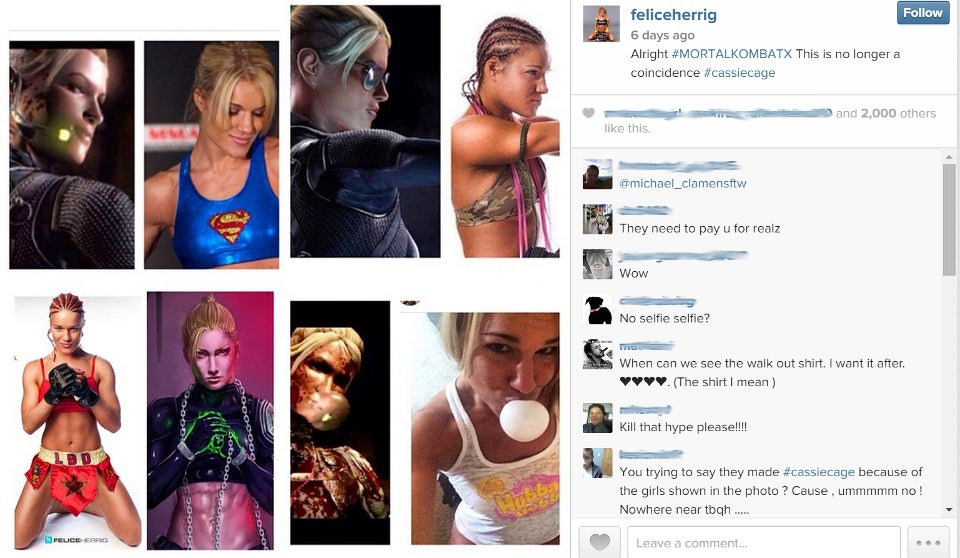Herrig posted on Instagram a picture of a video game character Cassie Cage in various poses side by side comparison with pictures of herself in various poses that were very similar to those depicted by the character with the caption, "Alright #MORTALKOMBATX This is no longer a coincidence #cassiecage."

Allegations of video games using a celebrity's likenesses without permission is nothing new. Actress Ellen Page accused Naughty Dog Studios of ripping off her likeness with the studio's release of The Last of US, which won numerous awards in 2013, including Game of the Year. Another instance in the same year occurred when Lindsay Lohan sued Rockstar Games the publisher famous for its Grand Theft Auto franchise for an alleged unpermitted use of her likeness as well.
Now this case brings up a certain issue in the law known as the right of celebrity, which is generally only recognized in jurisdictions that are hubs for the entertainment industry, i.e. California or New York. Some of the most famous cases recognizing a right to ones own image were Midler v. Ford and White v. Samsung. In Midler, Beth Midler sued Ford Motor Company for using an actress that looked like her in a television commercial and who imitated signature sound and voice to make it appear that Midler herself was endorsing the product. The court sided with Midler given the evidence that she had previously refused to work on the commercial and therefore it appeared that Ford was trying to fool its customers and the general public which many of the target audience were fans of Midler at the time.
In White, Vanna White, a television personality known for her long run on the Wheel of Fortune television show sued Samsung Electronics for one of its commercials. In the commercial Samsung created a robot that would flip cards and use the same mannerisms as White. Although in this case the parties settled out of court.
Most cases today regarding this issue use what is called the "substantial similarity test" created by Judge Posner in McFarland v. Gaiman. In this test, the judge looks at the two works and determines whether the similarities are substantial enough to confuse one for the other as well as the intention of the two parties involved. Of course in Mcfarland, one was dealing with copyrightable works. Images on Instagram may fall into a grey area as they are out there for all the world to see and distribute infinitely, without the author's explicit permission.
When looking at this case the pictures when looked at side by side appear to be very similar. It is not unfeasible to think that some of the developers of the game were fans of mixed martial arts and Herrig herself. In some way this might be a form of recognition of her accomplishments as a fighter in the world of WMMA that she appeals to a video game audience as well.
It is unclear whether Herrig is actually going to pursue any complaint against Warner Bros Games or Nether Realm Studios for that matter. As always I'd like to ask what you think after seeing the pictures. If you have any questions or comments leave them down below or via Google+ and twitter @mmalegal2016.
No comments:
Post a Comment